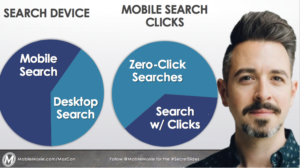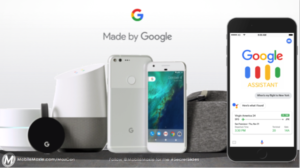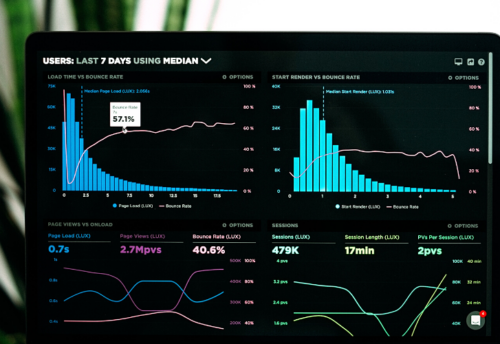
MozCon 2018: Mobile-First Indexing or a Whole New Google
The following post is part of WTWH Media Marketing Lab’s ongoing blog series from MozCon 2018.
Cindy Krum, CEO and Founder of MobileMoxie, LLC, took the MozCon stage to explain the emergence of voice-search and how marketers are struggling to understand how their website and their job will change, as searches focus more on entity understanding.
“61% of mobile searches don’t even result in a click,” Krum stated when she began her presentation.
The audience looked around stunned and Krum went on to explain that desktop tools are not providing accurate mobile rankings, but those numbers hardly matter. Why? Because the top of the fold is dominated by:
So, that leaves the question, where did all the websites go? Krum explained that the web is changing and most search engine optimizers (SEOs) are missing the point. “Mobile-first indexing is not just about websites,” she said. As you can see by the image below, Google has been investing in devices with no screens. Which means, Google just can’t list websites in voice search results.
“Historically, Google’s reliance on links and keywords as the primary means of surfacing content in a search, has rejected the idea that the world has some larger order, hierarchy or organizing principle than language. But it does – it has entities,” Krum said.
Entities are ideas or concepts that are universal and exist outside of language. Krum explains that entities can be described by keywords, but can also be described by pictures, sounds, smells, feelings and concepts.
Krum also explained that she refers to Mobile-First Indexing as “Entity-First Indexing,” because it is much more accurate and descriptive of the challenges and changes that SEOs are going to face. Mobile-first indexing/Entity-first indexing allows Google to surface the right content in the right context.
Why is entity-first indexing great for Google?
- Its just good for business
- Entities are hosted and understood by Google without crawling
- Entities make voice queries easier to parse
- Google sees more profitable monetization opportunities
Now that we are seeing are pages being pushed down in the SERP because Google is taking up the top fold with knowledge graphs and answers, how do we prepare and respond?
- Build out Google entities: Google My Business pages, G+ brand pages, Knowledge Graph, etc.
- Optimize/create non-domain entity content
- A non-domain entity is “Entities without a domain, like ideas, concepts or things in the Knowledge Graph are given a Google URL that represents their location in the index (apps, videos, audio).
- Test text content for entity classification and understanding
As you can see, changes are coming. How will your website adapt to these changes? If you would like to read more on this Entity-First Indexing, Krum has a series of blogs further discussing the topic. Let us know you are doing or plan on doing to respond to the change.
 Cindy Krum is the CEO and Founder of MobileMoxie, LLC, a mobile marketing consultancy and host of the most cutting-edge online mobile marketing and SEO tool set on the market.
Cindy Krum is the CEO and Founder of MobileMoxie, LLC, a mobile marketing consultancy and host of the most cutting-edge online mobile marketing and SEO tool set on the market.






Leave a Comment
You must be logged in to post a comment.